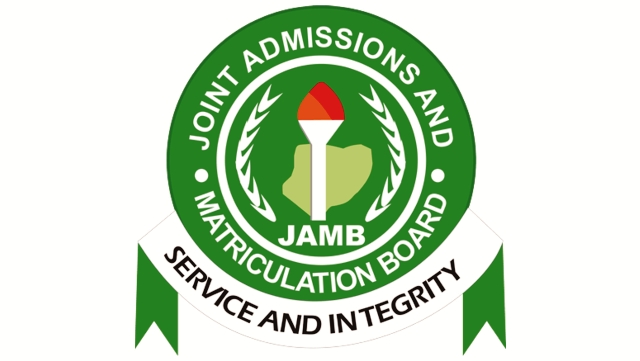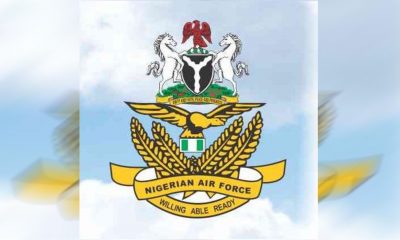Opinion
Privatising Nigeria’s Petroleum Industry (11)

From Nigeria’s
perspectives, so many questions can be asked concerning government’s control of the oil sector.
First, can the government ensure the availability, reliability, and sustainability of crude oil and petroleum products supply in Nigeria if it does not regulate the industry by fixing the prices of petroleum products for marketers?
Secondly, given the international nature of crude oil sector, how can Nigeria address some of the international issues surrounding the energy industry, such as meeting its external and domestic social needs, if the government does not intervene by fixlng prices of products?
Thirdly, given the monolithic nature of the Nigeria’s economy and the lack of diversification to other sectors such as agriculture, solid minerals, renewable energy sources and the manufacturing sector, can the government afford to lose grip of the petroleum industry?
Fourthly, drawing from the previous failed attempts to reform and to privatise partially or wholly the petroleum industry by the government, is there further assurance that privatisation or commercialisation of the NNPC would be the magic needed to reposition the industry?
Finally, what are the pros and cons of government’s regulation of petroleum products prices in Nigeria?
Space and time would not permit me to adequately address these germane questions which are equally bogging the minds of many Nigerians. However, in attempting an answer, it is important to note that the government is the first party in the search for energy security in Nigeria. This is because under the provision of the Petroleum Act 1969, it is the owner of petroleum resources that sets the policy and regulatory frameworks for the exploitation of the resources.
According to Dow, it is the fundamental duty of government to formulate appropriate energy policy and strategy that could embody different levels of energy mix. This author argues that it is also the primary responsibility of the government to guarantee the provision of adequate petroleum resources for domestic consumption as a public service obligation.
In order to discharge this role, the government is expected to create an enabling regulatory environment that would reduce geopolitical conflicts and promote both local and foreign investments in the industry. A stable operating environment is desired for security of supply to be attained while adequate enforcement of the existing laws would reduce acts of criminality such as hording and racketeering that affected industry and consumers of products.
However, the bane of the petroleum industry in Nigena is the lack of adequate enforcement of the regulatory machineries and lack of political will. It could be argued that where there is no stable legal and political environment, as has been quite evident in the past few years before the government granted amnesty to the Niger Delta militants, no proper exploratory and productive activity could take place. Likewise, in the absence of functional developmental projects in the oil-producing region, no sufficient crude oil and gas could be produced. Therefore, it is one of the basic duties of the government to develop these areas, improve existing infrastructure, which are vital in promoting security of supply.
One way to achieve security of supply is for the government to think outside the box. This envisions the need to harness local technological prowess in the existing local refineries found in the creeks and waters of the Niger Delta; recognising these talents by licensing them and obtaining taxes from their owners, while enforcing good behaviour among them through law which would punish any criminal tendency.
The solid mineral sector recognises small scale miners under the Nigeria Mineral and Mining Act 2007, hence it would not be out of place to argue for the recognition of any leitimate small scale refineries in the Niger Delta. Furthermore, there might be a need on the part of the government to nip in the bud corruption and bottlenecks in the industry through the instrumentality of government’s machineries. This is because corruption and lack of transparency are inimical to the effective administration of NNPC; hence negatively affecting its delivery of services such as the provision of adequate petroleum products.
Government and the International Oil Corporations (IOCs) have leading roles to jointly develop and fund the various energy security infrastructures that will promote security of supply for domestic consumption. These include pipelines jetties, landing ports, etc. If government does not adequately intervene, it would be difficult to ensure sustainable supply of petroleum products.
The nations refineries of 445,000 barrel per day production capacity have no reasons for not functioning on the average up to 50 % capacity. With this capacity production the level of importation of petroleum products would be reduced. And the current challenge posed by inadequate foreign exchange to import the volume of fuel required by Nigeria would not have arisen.
Dr Dike is a senior lecturer, RSUST, Port Harcourt.
Samuel C. Dike
Opinion
Why Reduce Cut-Off Mark for C.O.E ?
Opinion
Welcome! Worthy Future For R/S
Opinion
Restoring Order, Delivering Good Governance
The political atmosphere in Rivers State has been anything but calm in 2025. Yet, a rare moment of unity was witnessed on Saturday, June 28, when Governor Siminalayi Fubara and Minister of the Federal Capital Territory, Chief Nyesom Wike, appeared side by side at the funeral of Elder Temple Omezurike Onuoha, Wike’s late uncle. What could have passed for a routine condolence visit evolved into a significant political statement—a symbolic show of reconciliation in a state bruised by deep political strife.
The funeral, attended by dignitaries from across the nation, was more than a moment of shared grief. It became the public reflection of a private peace accord reached earlier at the Presidential Villa in Abuja. There, President Bola Ahmed Tinubu brought together Governor Fubara, Minister Wike, the suspended Speaker of the Rivers State House of Assembly, Martin Amaewhule, and other lawmakers to chart a new path forward.
For Rivers people, that truce is a beacon of hope. But they are not content with photo opportunities and promises. What they demand now is the immediate lifting of the state of emergency declared in March 2025, and the unconditional reinstatement of Governor Fubara, Deputy Governor Dr. Ngozi Odu, and all suspended lawmakers. They insist on the restoration of their democratic mandate.
President Tinubu’s decision to suspend the entire structure of Rivers State’s elected leadership and appoint a sole administrator was a drastic response to a deepening political crisis. While it may have prevented a complete breakdown in governance, it also robbed the people of their voice. That silence must now end.
The administrator, retired naval chief Ibok-Ette Ibas, has managed a caretaker role. But Rivers State cannot thrive under unelected stewardship. Democracy must return—not partially, not symbolically, but fully. President Tinubu has to ensure that the people’s will, expressed through the ballot, is restored in word and deed.
Governor Fubara, who will complete his six-month suspension by September, was elected to serve the people of Rivers, not to be sidelined by political intrigues. His return should not be ceremonial. It should come with the full powers and authority vested in him by the constitution and the mandate of Rivers citizens.
The people’s frustration is understandable. At the heart of the political crisis was a power tussle between loyalists of Fubara and those of Wike. Institutions, particularly the State House of Assembly, became battlegrounds. Attempts were made to impeach Fubara. The situation deteriorated into a full-blown crisis, and governance was nearly brought to its knees.
But the tide must now turn. With the Senate’s approval of a record ?1.485 trillion budget for Rivers State for 2025, a new opportunity has emerged. This budget is not just a fiscal document—it is a blueprint for transformation, allocating ?1.077 trillion for capital projects alone. Yet, without the governor’s reinstatement, its execution remains in doubt.
It is Governor Fubara, and only him, who possesses the people’s mandate to execute this ambitious budget. It is time for him to return to duty with vigor, responsibility, and a renewed sense of urgency. The people expect delivery—on roads, hospitals, schools, and job creation.
Rivers civil servants, recovering from neglect and under appreciation, should also continue to be a top priority. Fubara should continue to ensure timely payment of salaries, address pension issues, and create a more effective, motivated public workforce. This is how governance becomes real in people’s lives.
The “Rivers First” mantra with which Fubara campaigned is now being tested. That slogan should become policy. It must inform every appointment, every contract, every budget decision, and every reform. It must reflect the needs and aspirations of the ordinary Rivers person—not political patrons or vested interests.
Beyond infrastructure and administration, political healing is essential. Governor Fubara and Minister Wike must go beyond temporary peace. They should actively unite their camps and followers to form one strong political family. The future of Rivers cannot be built on division.
Political appointments, both at the Federal and State levels, must reflect a spirit of fairness, tolerance, and inclusivity. The days of political vendettas and exclusive lists must end. Every ethnic group, every gender, and every generation must feel included in the new Rivers project.
Rivers is too diverse to be governed by one faction. Lasting peace can only be built on concessions, maturity, and equity. The people are watching to see if the peace deal will lead to deeper understanding or simply paper over cracks in an already fragile political arrangement.
Wike, now a national figure as Minister of the FCT, has a responsibility to rise above the local fray and support the development of Rivers State. His influence should bring federal attention and investment to the state, not political interference or division.
Likewise, Fubara should lead with restraint, humility, and a focus on service delivery. His return should not be marked by revenge or political purges but by inclusive leadership that welcomes even former adversaries into the process of rebuilding the state.
“The people are no longer interested in power struggles. They want light in their streets, drugs in their hospitals, teachers in their classrooms, and jobs for their children. The politics of ego and entitlement have to give way to governance with purpose.
The appearance of both leaders at the funeral was a glimpse of what unity could look like. That moment should now evolve into a movement-one that prioritizes Rivers State over every personal ambition. Let it be the beginning of true reconciliation and progress.
As September draws near, the Federal government should act decisively to end the state of emergency and reinstate all suspended officials. Rivers State must return to constitutional order and normal democratic processes. This is the minimum requirement of good governance.
The crisis in Rivers has dragged on for too long. The truce is a step forward, but much more is needed. Reinstating Governor Fubara, implementing the ?1.485 trillion budget, and uniting political factions are now the urgent tasks ahead. Rivers people have suffered enough. It is time to restore leadership, rebuild trust, and finally put Rivers first.
By: Amieyeofori Ibim
Amieyeofori Ibim is former Editor of The Tide Newspapers, political analyst and public affairs commentator
-
Opinion10 hours ago
Why Reduce Cut-Off Mark for C.O.E ?
-
News6 hours ago
Rivers Chief Judge Frees 21 Awaiting Trial Inmates
-
Politics9 hours ago
Alleged Money Laundering: Fayose Has No Case To Answer, Court Tells EFCC
-
Rivers8 hours ago
CDS Urges Communities To Protect Pipelines
-
Politics10 hours ago
Atiku’s Exit No Problem To PDP – Makinde
-
News6 hours ago
South-South contributes N34trn to Nigeria’s economy in 2024 – Institute
-

 News9 hours ago
News9 hours agoJAMB Uncovers 9,469 Fake Admissions In 20 Tertiary Institutions
-

 News8 hours ago
News8 hours agoNAF Disowns Recruitment Adverts, Says It’s Fake

